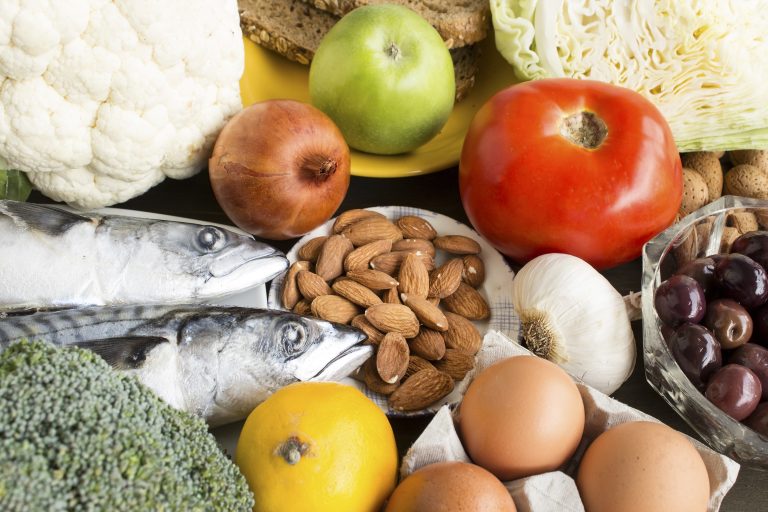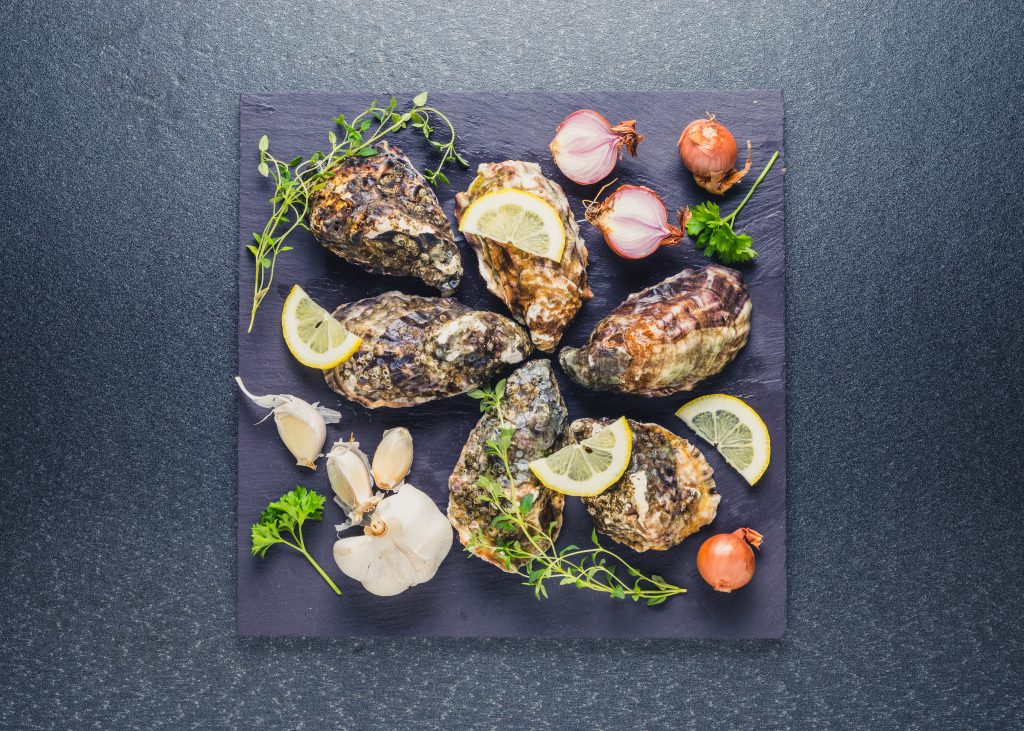
How Eating Fish Can Help Manage Diabetes
The number of people in the United Kingdom who have diabetes is estimated to be more than 5 million, including

How things change. Oysters are nowadays viewed as a luxurious treat but in Victorian times the opposite was true – in Charles Dickens’ debut novel, The Pickwick Papers, published in 1836, the cockney Sam Weller says: “Poverty and oysters always seem to go together.”
Besides their albeit recent association with decadence, oysters have long been regarded as an aphrodisiac. The high levels of zinc they contain are said to increase testosterone levels and one study found that bivalves, such as oysters and mussels, are rich in amino acids which cause increased levels of sex hormones.
Whatever the truth of the matter, there can be no doubt that a platter of crushed ice topped by a dozen shucked oysters and a few wedges of lemon, accompanied by a chilled bottle of chablis or champagne, is more likely to perk you up than not.
For those new to the eating of oysters, there are a few points to consider. Once you’ve absorbed these, however, you’ll be ready to embark on a journey of passion with few rivals in the culinary realm.
When to eat oysters
Traditional wisdom holds that you should only eat oysters when there’s an “r” in the month, which is broadly true. Depending on where you live, the oyster breeding season starts in May/June and ends in August, during which their flesh becomes milky with a creamy texture that’s not to everyone’s liking.
Our Atlantic oysters are harvested off the north-west coast of Scotland, where the breeding season tends to start in June, so from then until September we let them get on with their natural cycle. But there’s nothing to stop you enjoying them now.
Why you should eat oysters
There are two simple reasons – taste and nutrition.
The flavour of oysters is best described as sweet, rich and clean – all they need to grow is unpolluted, often brackish shallow water. Oyster farming has almost no environmental impact, and the end product is consequently (and consistently) pure.
Besides the aforementioned high levels of zinc – around 50 times more than found in chicken – oysters are packed with vitamin B12 (key to smooth function of the brain and nervous system), copper, iron and iodine. They’re very low in fat and calories too, and high in protein.
How to eat oysters
Before you can bless your senses with the flavour and texture of oysters you need to learn how to open them, and for that job you will need a shucking knife (optional extra equipment includes a thick leather glove). There are lots of online videos where you can see how it’s done.
Thereafter it’s a question of whether you like them raw – drizzled with lemon juice and/or Tabasco and perhaps dusted with a little white pepper – or cooked.
In the UK almost all oysters are eaten raw, but not everyone appreciates raw shellfish (we know of one French woman who foolishly ate a bad one when nine months’ pregnant, thus bringing her daughter into the world slightly before nature intended). Have a look at the recipes at the foot of this article for ideas on how to cook oysters.
What to drink with oysters
If money is no object then high-end champagne is a no-brainer – the contrast of the smooth oyster flesh and lively bubbles is irresistible.
Oysters are often described as tasting minerally, and are perfectly complemented by wines with a similar cleanliness of flavour and mouthfeel, chablis being the number-one choice. If your budget won’t stretch that far then try muscadet, picpoul de pinet, pinot grigio or albariño.
If you’re up for a more adventurous (and less costly) match, give Guinness a go. It’s at the opposite end of the textural spectrum from champagne – smooth as opposed to fizzy – but visually and in terms of feel, the black stuff goes surprisingly well with oysters.

The number of people in the United Kingdom who have diabetes is estimated to be more than 5 million, including

In common with all good habits, healthy eating begins in the early years. But how do we instil an appetite

Ten years ago most of us had never heard of air fryers. Now, a reported three in 10 UK households

Let’s not beat about the bush – 2022 is shaping up to be a memorable year for all the wrong
Save 10% when you sign up for exclusive discounts/offers, recipes and news. We promise not to flood your inbox – and you can unsubscribe at any time.
Place Order On | Earliest Delivery |
|---|---|
Mon 10am – Tue 10am | Thu |
Tue 10am – Wed 10am | Fri |
Wed 10am – Thu 10am | Sat |
Thu 10am – Mon 10am | Wed |
1. Click here
2. Tell the world what you think about Fresh Fish Daily
3. Email a link to your review to [email protected] and we’ll send you a discount code to use on your next order
Please take a few minutes to let us know what you think – for example what we do well, where we can improve or what you’d like to see us add to our product range. Thank you!
This website uses cookies so that we can provide you with the best user experience possible. Cookie information is stored in your browser and performs functions such as recognising you when you return to our website and helping our team to understand which sections of the website you find most interesting and useful. This website uses Google Analytics to collect anonymous information such as the number of visitors to the site, and the most popular pages etc. We also use Facebook pixel to track Ads.
Strictly Necessary Cookie should be enabled at all times so that we can save your preferences for cookie settings. Customers must also use the Wordpress and Woocommerce cookies for the website to work. We also collect anonymised data for Google Analytics to be able to improve the website.
If you disable this cookie, we will not be able to save your preferences. This means that every time you visit this website you will need to enable or disable cookies again.
This website uses the following additional cookies:
We use the Facebook Pixel to track visitors from advertisements to understand how we can improve both our website and ad targeting.
Please enable Strictly Necessary Cookies first so that we can save your preferences!
Read more information in our Cookie Policy